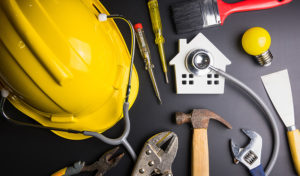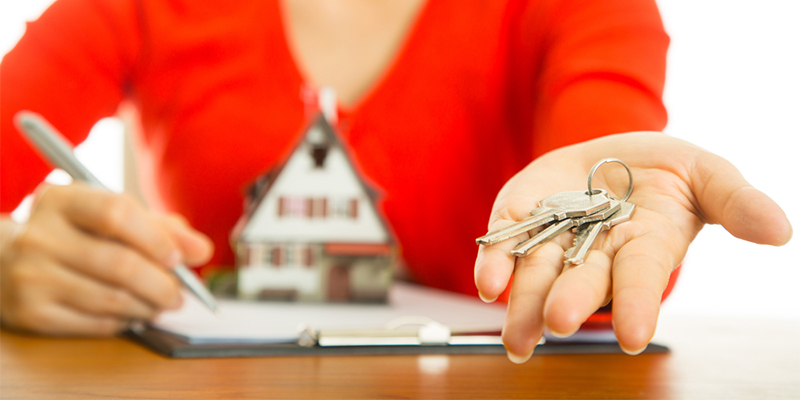A good landlord tenant relationship can help you retain good renters. Cultivating a bond based on mutual respect, though, is often easier said than done.
The Importance of a Good Landlord Tenant Relationship
What is a landlord tenant relationship? It’s exactly as it sounds — it’s a term used to describe the relationship between a landlord and their tenant. This usually refers to the contractual relationship between tenants and landlords, but it can also extend beyond the impersonal.
A healthy relationship between landlord and tenant can benefit both parties in many ways. For landlords, it means retaining quality tenants and minimizing vacancy rates. This, in turn, directly affects turnover costs in a positive way. The longer your tenant stays, the less you need to spend on the turnover process.
Additionally, should your tenant ever move out, they can help with the tenant search process. They can provide you with referrals and recommendations, reducing the need to market your property.
For tenants, a good relationship means your landlord will address your concerns quickly and may exercise leniency when it comes to minor lease violations. The benefits can also continue even after you move out. Past landlords can provide excellent testimonials and endorse you to your would-be landlords.
How to Build a Great Tenant Landlord Relationship
A good relationship between landlords and tenants doesn’t just come naturally. It requires effort on both the part of the landlord and the tenant. If you’re the former, here are some tips on how you can build a positive landlord tenant relationship:
1. Find Good Tenants
It’s hard to build a good relationship with a bad tenant. To make sure you end up with a quality tenant, don’t skimp out on tenant screenings. This usually involves running checks on their employment, rental history, credit score, and criminal history.
2. Set Expectations from the Start
It’s important to make sure the relationship between you and your tenant starts off on the right foot. For landlords, that usually means setting expectations from the get-go. Let your tenant know what they can expect from you as a landlord. It’s also worth discussing any policies and processes you have in place.
Finally, make sure to tell them not to hesitate to come to you with questions or concerns. In doing so, you can establish a welcoming persona and make it easier for tenants to approach you with problems.
3. Communicate Regularly
Like any other healthy relationship, a good landlord tenant relationship relies on open communication. Provide your tenants with your phone number and email address. Talk to your tenants and pay property visits on the regular, even if you’re just checking up on them. This type of personal touch will really let your tenants know that you care.
4. Respond and Address Concerns Immediately
It’s not enough to make yourself available to tenants — you also need to be responsive. When you receive a complaint or maintenance request, reply to them as soon as you can. Moreover, you should address their issues in a prompt manner. Don’t make your tenants wait too long that they start to grow impatient.
You can even take it one step further and provide your tenants with an online portal. Tenants can use this online portal to communicate with you, submit maintenance requests, and even pay rent online. Convenience is an asset in the rental property management arena.
 5. Maintain the Property
5. Maintain the Property
Performing regular maintenance is part of your job as a landlord. In fact, according to the Landlord-Tenant Law, you’re legally required to provide your tenant with livable conditions. But, don’t just do the bare minimum.
Go above and beyond with maintenance. Also, take the initiative to perform maintenance and repairs if you spot any declining features in your rental unit. You can even provide upgrades or improvements to endear yourself to your renter. Remember, if the place isn’t good enough for you, it’s definitely not good enough for your tenant.
6. Respect Your Tenant’s Privacy
Your tenant has a right to quiet enjoyment and privacy. Therefore, you should respect their need to be in their own space without you interfering all the time. You might own the place, but your tenant pays you to live there.
The key to great tenant relations is to be mindful of their belongings. And, if you need to enter the unit, make sure to provide proper notice. The amount of notice required depends on the state, but it’s usually at least 24 hours’ notice.
7. Treat Your Rental Like a Business
Your rental property is very much like a business, so it makes sense for you to run it that way. In that case, your tenants are your customers, which means you should treat them as such — with respect and care. Similarly, your rental property is your product, so you should constantly try to improve it in any way you can.
8. Be Compassionate Yet Firm
Maintaining excellent renter relations often requires striking the right balance between compassion and strictness. Sure, you might have stringent policies and restrictions, such as no pets or no overnight guests. But, that doesn’t mean you can’t be accommodating, especially when it comes to good tenants.
For Tenants: Do Your Part
Building a good landlord tenant relationship is a two-way street. As a tenant, that means doing your part to contribute. How do I have a good relationship with my landlord?
- Pay Rent on Time. The simplest way to cultivate a good relationship with your landlord is to consistently pay rent on time and in full. If you tend to be forgetful, try to pay in advance or set reminders on your phone before the due date.
- Maintain Cleanliness. Treating the property as if it’s your own is a surefire way to get on your landlord’s good side. Clean the place up regularly and make sure to take care of any appliances that come with the unit.
- Report Damages at Once. Fixing damages immediately can prevent their condition from worsening. Therefore, if you find any damages (even if you caused them), don’t try to hide them and report them at once.
- Be a Good Neighbor. Reduce the number of complaints your landlord has to deal with by being a good neighbor. That means picking up after your pet, no foul odors coming from your unit, and keeping the noise to a minimum.
- Follow Lease Terms. Nothing says “outstanding tenant” like following the terms of your lease to a T. If your lease says you can’t sublet or use your apartment as a place of business, make sure to comply.
- Understand Your Landlord. Your landlord is a person, too, with their own problems and schedules. Therefore, you should try to be understanding and avoid making unreasonable demands.
- Say Thanks. A little thanks goes a long way. Show some appreciation for your landlord by complimenting new upgrades to the property, sending them a small gift, or even just writing them a thank-you note.
A Property Manager Can Help
When it comes down to it, you can form a great landlord-tenant relationship by simply performing your duties and just generally being a good person. Landlords, though, can pass on the burden of maintaining this relationship — as well as other landlord tasks — to a property manager.
Searching for a property manager who can nurture tenant relations is often difficult. But, you can simplify the process with the help of Rental Choice’s online directory today.
RELATED ARTICLES:
- Avoiding Bad Tenants At All Cost
- How To Become A Landlord And Be A Great One
- Removing Mold In Apartment: Is It Tenant Or Landlord Responsibility?




 Company
Company